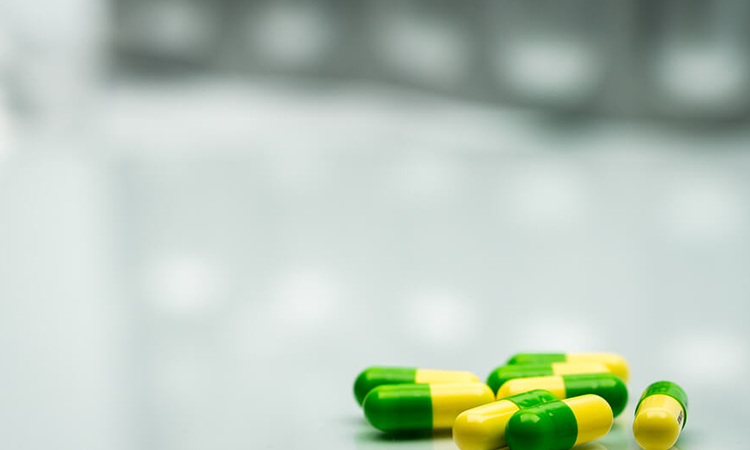
Is Ritalin Addictive? Ritalin (methylphenidate) is a stimulant drug indicated to treat attention-deficit hyperactivity disorder (ADHD) and narcolepsy. If misused without a doctor’s supervision, Ritalin is categorized by the Drug Enforcement Agency (DEA) as a controlled substance and has a high potential for addiction due to its effect on the brain’s reward system.
How Ritalin Works
Ritalin is usually taken in the form of an oral tablet but can also be crushed and snorted or injected. Its stimulant properties result in effects similar to cocaine and other amphetamines, including meth. Ritalin exposure causes the brain to cease the reuptake of dopamine, a chemical that is responsible for feelings of well-being and euphoria.
By allowing more dopamine to reach brain receptors, Ritalin helps people with ADHD increase attention signals. In people without ADHD, Ritalin use leads to increased feelings of energy and elation.
Similar Medications
Other medications that include Ritalin’s active ingredient, methylphenidate include the following:
- Aptensio
- Concerta
- Metadate
- Methylin
- Quillichew
- Quillivant
The drugs have similar effects as Ritalin, and therefore also have a high potential for abuse and addiction.
How Ritalin is Abused
Ritalin is commonly misused for its stimulant psychoactive properties. It is sometimes used recreationally as a club drug and found at parties, clubs, concerts, festivals, etc. It is also used for its energizing effects, such as by college students during cram sessions or truck drivers working long hours.
The consequences of Ritalin addiction include drug cravings and withdrawal effects when use is ceased. Frequent abuse can result in both dependence and tolerance.
Dependence occurs over time when the brain adjusts to the presence of a drug and can no longer function normally. When the user tries to cut back or quit altogether, this action results in a myriad of unpleasant side effects.
When tolerance occurs, the body needs increasing amounts of the drug in order to achieve the desired feelings. This result can lead users to consume higher doses more frequently, increasing the severity of the addiction and the possibility of an overdose.
How to Avoid Ritalin Addiction
You can prevent Ritalin dependency by following these guidelines:
1. Do not take Ritalin or other amphetamines without a doctor’s prescription.
2. Do not take doses in greater amounts than prescribed.
3. Do not take doses more frequently than prescribed.
4. Only use Ritalin for its intended medical purpose.
People with ADHD at a reduced risk for addiction than people who abuse it recreationally. Moreover, it increases calm, focus and concentration in affected individuals, rather than merely stimulate the system to the point of extreme energy and euphoria.
Signs Of Ritalin Addiction
Ritalin addiction can result in a number of adverse physical, mental, and social effects. People who abuse Ritalin may engage in illegal activities in order to obtain the drug, suffer from severe side effects, or display poor impulse control and risky behavior such as driving while intoxicated.
Ritalin abusers may also neglect important responsibilities, such as work, school, and family life. They may battle with financial difficulties and strained relationships due to drug use.
Physical and Mental Side Effects
The severity and duration of Ritalin’s effects depend on the individual, the dose consumed and how often, and the person’s level of tolerance.
Also, when Ritalin is snorted or administered through injection, the initial effects are typically much more intense than when taken as a tablet.
Effects of Ritalin abuse can include:
- Talkativeness
- Suppressed appetite/weight loss
- Confusion
- Agitation and anxiety
- Depression
- Insomnia
- Paranoia
- Fatigue
- Increased heart rate
- Nausea
- Headache
- Chest pain
- Raised or lowered blood pressure
The long-term effects of Ritalin abuse may include:
- Disorientation
- Apathy or dysphoria (unfeeling or unhappy)
- Marked mood changes
- Delusions, hallucinations, and other psychotic symptoms
- Frequent seizures
- Anorexia and profound weight loss
- Alternating bouts of mania and depression
- Suicidal ideations
Signs of a Ritalin Overdose
Although rare, a Ritalin overdose can be lethal. If you or someone you know is exhibiting the following signs, please contact medical emergency personnel immediately:
- Uncontrolled vomiting
- Hallucinations
- Noticeably dilated pupils
- Extremely flushed skin
- Fever
- Dryness of the mouth/nose
- Rapid heartbeat
- Severe chest pain
- Shortness of breath
- Seizures and convulsions
- Loss of consciousness
Treatment for Ritalin Addiction
Ritalin addiction treatment often begins with a medically-assisted detox. During this process, the body rids itself of the drug under the supervision of medical personnel. Detox usually takes a few days to complete before the client can move on to formal addiction treatment.
Our treatment programs include both inpatient (residential) and outpatient formats. Both tracks offer individual and group therapy, counseling, 12-step program meetings, and holistic practices such as art and music therapy.
Clients should participate in treatment for a minimum of 30-60 days. Outpatients can choose to live in a private residence or approved sober living home and take advantage of aftercare planning services and alumni activities when treatment is complete.